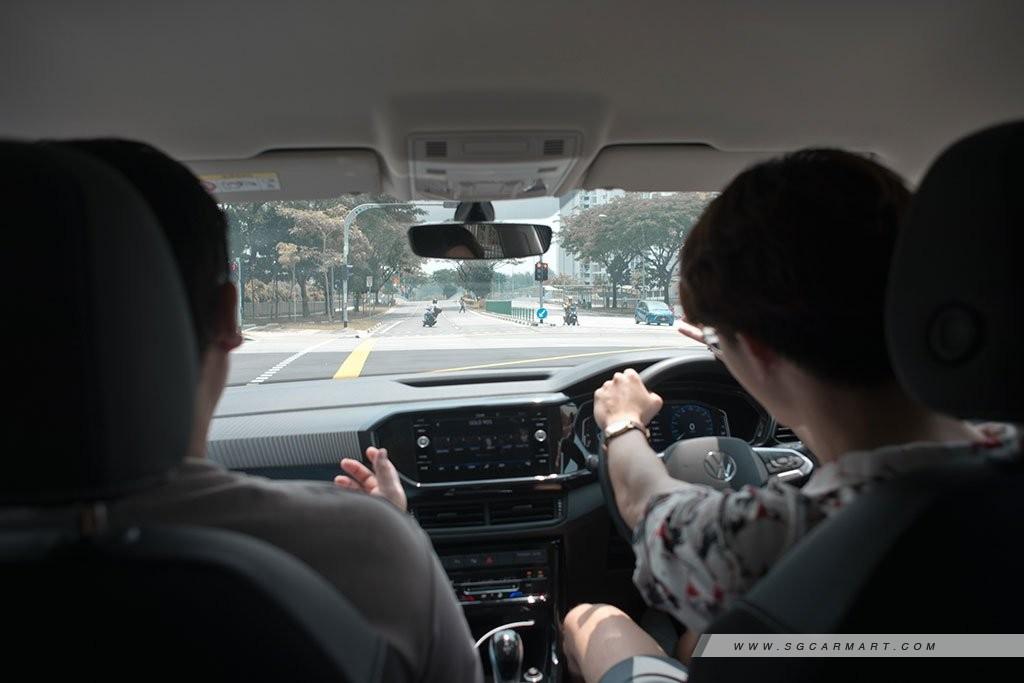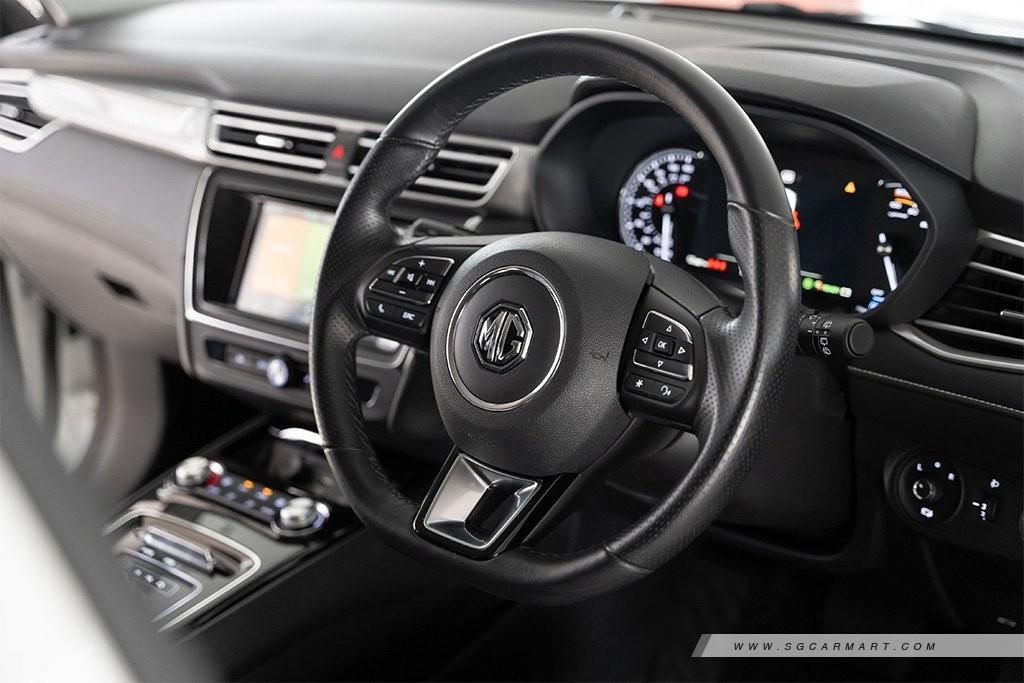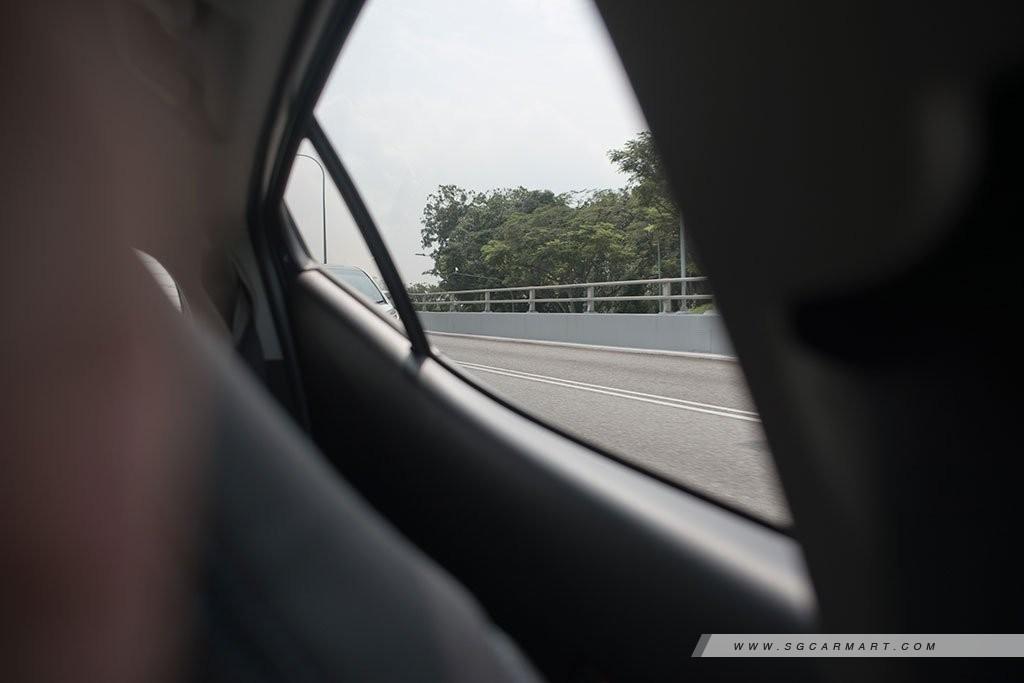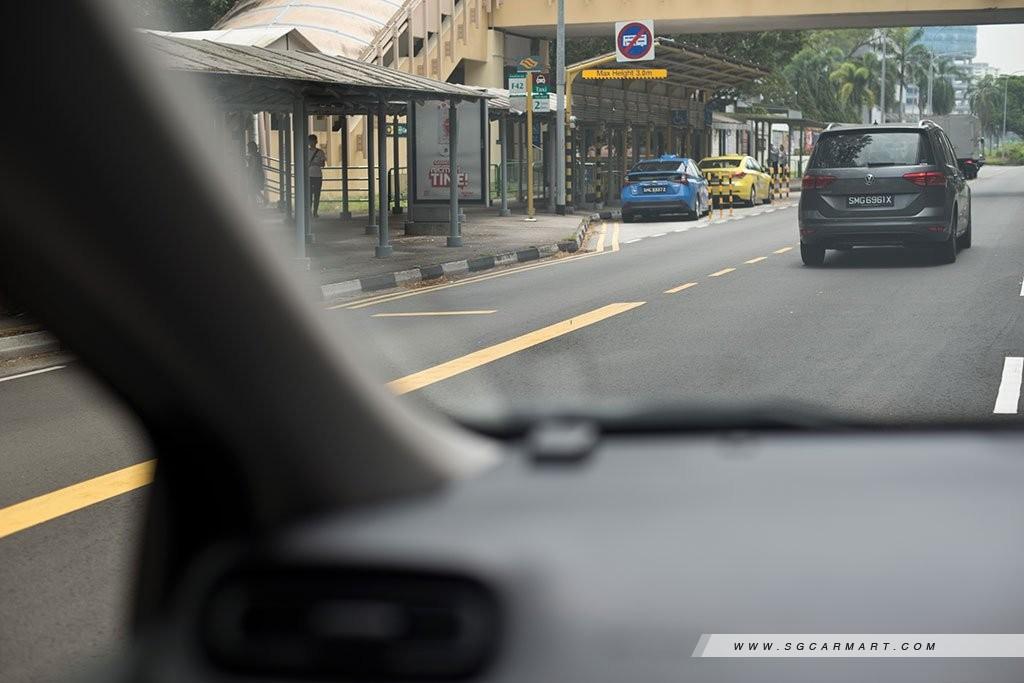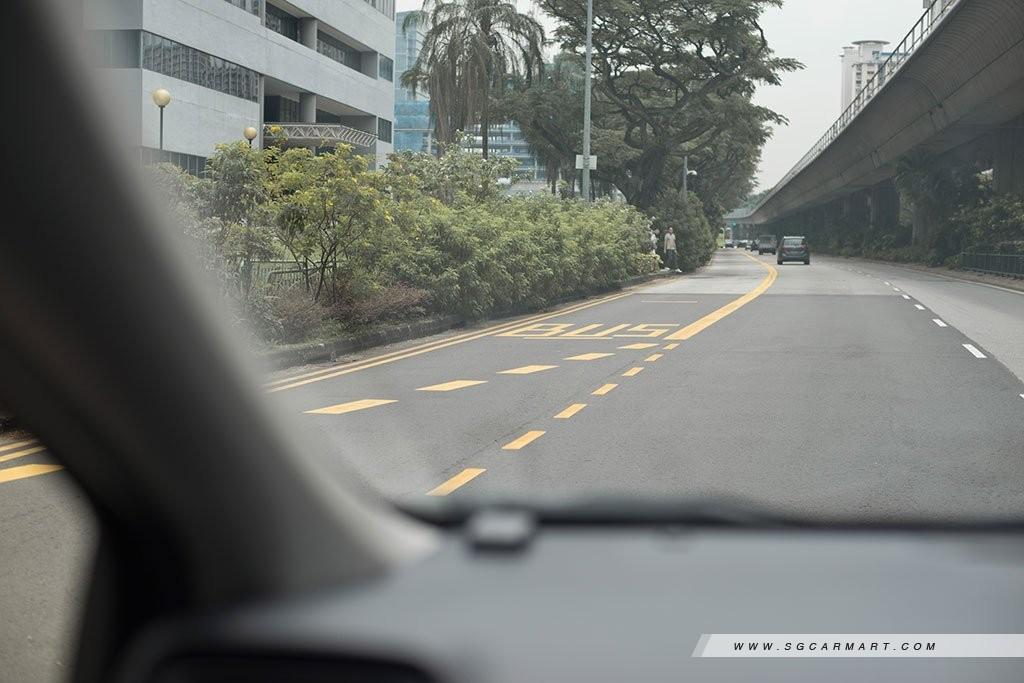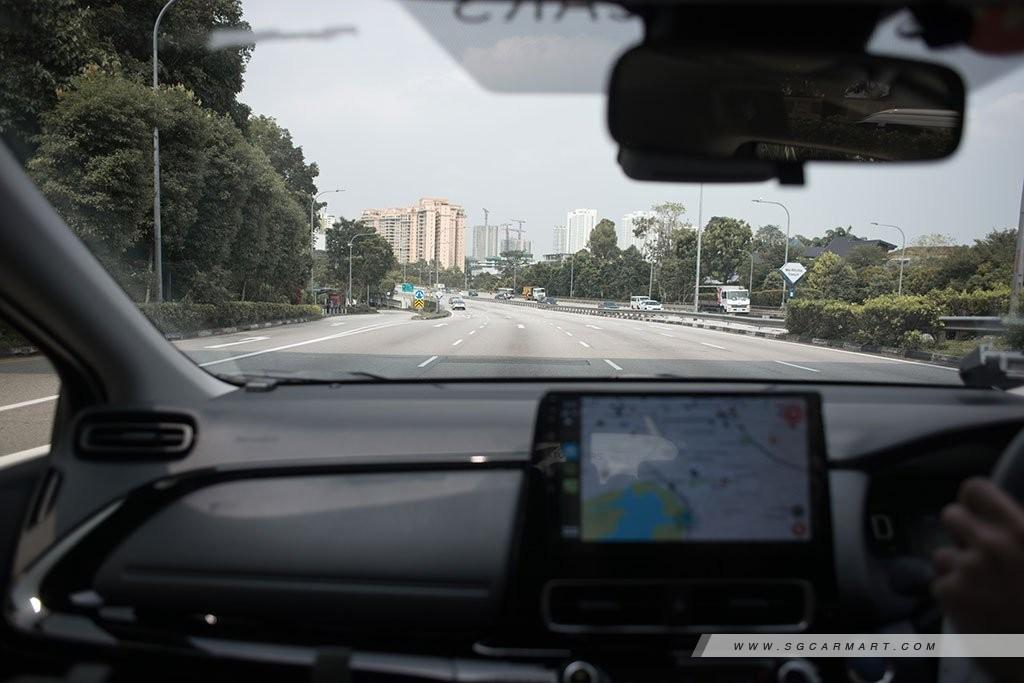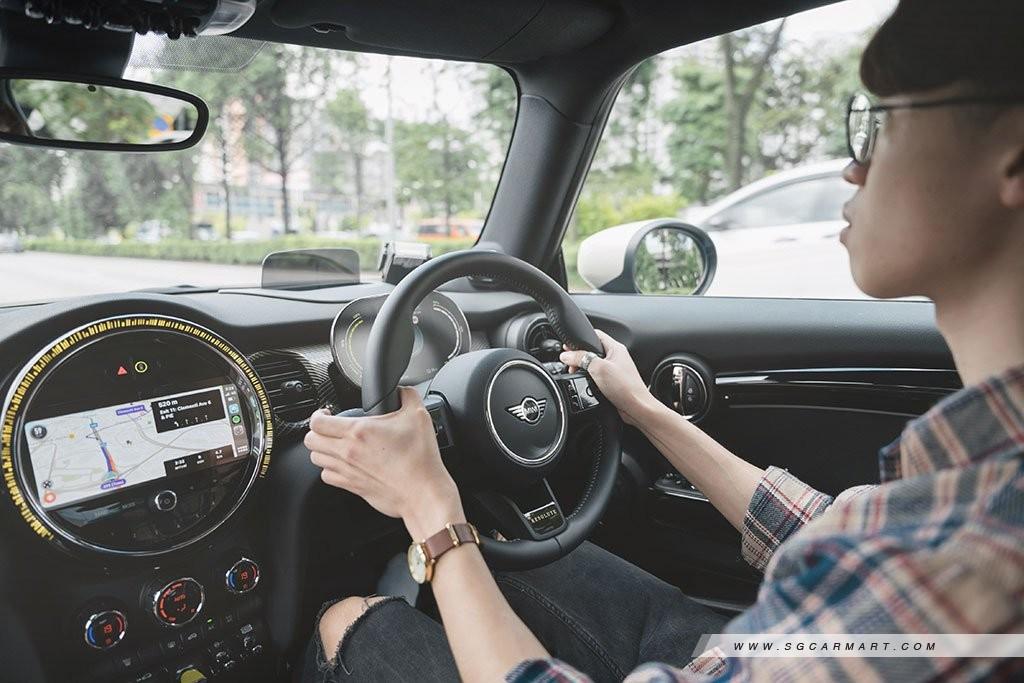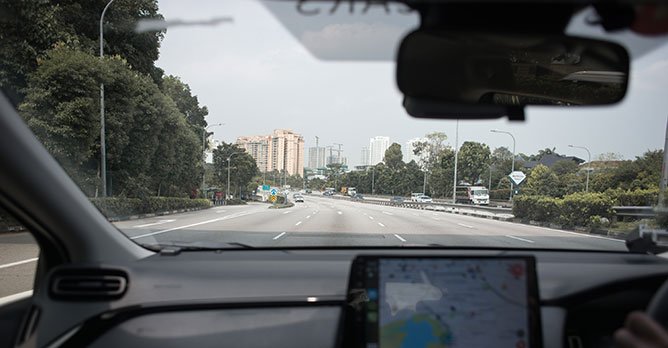Five things P-plate drivers in Singapore should keep in mind immediately after passing
20 Apr 2023|15,588 views
It should go without saying, but experienced drivers and freshly-minted drivers see the road through very different lenses. What someone might not question after driving for 10 years may be quite the daunting task for someone who's always had a driving instructor by their side.
On the flip side, some good practices are lost along the way as one gets more comfortable being on the road - when, in fact, they should be retained for life. If you've just gotten your license, here are five things you should take note of before you take to the road as an independent driver!
1. Become comfortable with using your horn
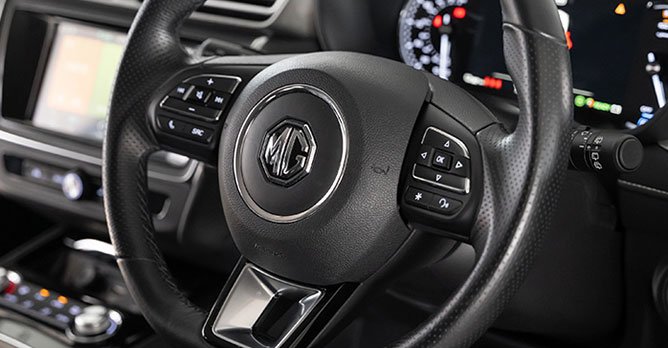
But horns are there for good reason. Sometimes, it may not even be so that the errant driver is being reckless on purpose; he or she may have just had a long day, and thus unintentionally let their alertness slip.
Plucking up the courage to use your horn in potentially dangerous situations doesn't make you a bad driver. In fact, it's sometimes exactly the right thing to do. Don't feel bad to warn others of danger (and to avoid it yourself) when the need to do so arises.
2. Continue to check your blind spots
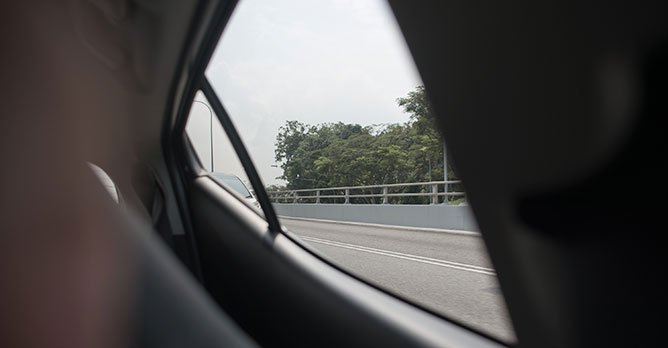
For those who have been on the road for a long time, this has always applied for motorcyclists. But the action is especially crucial today, given that the rise of the gig economy with GrabFood and FoodPanda has seen a proliferation of bicycles on our roads.
You'll never know when a rider or cyclist that has thrown more caution to the wind is speeding down your side on the highway, or darting from behind your rear right/left when you're exiting a left turn. In this situation, a blind spot check may just be the extra step of caution that helps both parties avert an accident.
3. Bus lane hours are sacred; always err on the side of caution
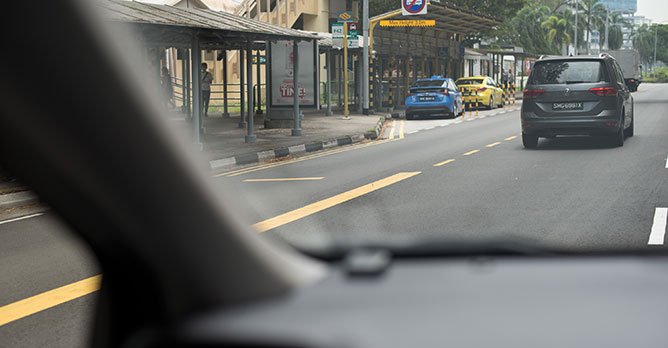
Thinking of sneaking a quick one and breaching an 'inconsequential' 10-metre stretch of a solid yellow line? You might want to exercise some patience.
There's no telling when an enforcement officer is planted behind a thick tree trunk, or overhead bridge landing area, ready to capture your offence on camera. Err on the side of caution - start moving leftwards only when you start to see the yellow line become dotted. (And just to confirm, your normal bus lane hours are between 7:30am and 9:30am, and 5:00pm to 8:00pm; red bus lanes apply for the full day, from 7:30am to 11:00pm).
4. Expressways are different from city roads
Before you flog us for making such a self-explanatory statement, let us explain.
With our speed limits justifiably capped as learner drivers, the feeling of putting more pressure on the accelerator pedal and seeing the needle go above 50km/h can be quite daunting at first. As such, having someone more experienced on board may help to save you just that bit of anxiety for the first time you decide to hit the CTE after passing.
At the same time, the difference in speed is also why it's important to incorporate expressways into your driving routes after passing. Besides learning to become more comfortable with handling a car at higher speeds, you'll pick up the important skill of merging onto the highway.
5. Finally, actually driving is the only way to improve
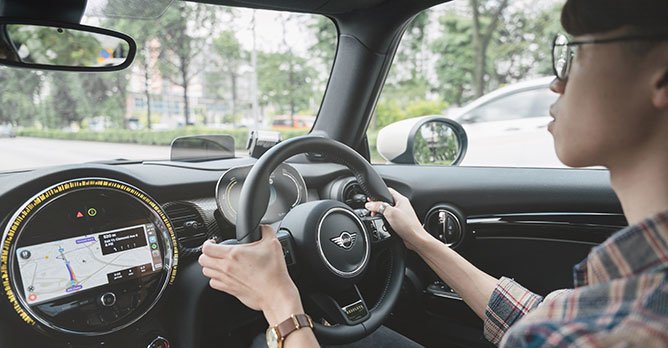
But it's important to let our folks know that this is, in fact, the only way to improve. There is absolutely nothing helpful about denying someone who's just gotten their license time on the road; they're not going to magically become more skillful with every passing month, or year.
A good driver is almost always a confident driver too (confident and overconfident are different, we stress), and actually being out on the road is the only way to build confidence. Don't let all that money on your license go to waste; be safe, but remember to take every possible opportunity to go out and get behind the wheel.
Here are some other articles you may find useful!
Newbie drivers take note - here are the road rules you should remember
Carparks that P-plate drivers should avoid in Singapore
Carparks that P-plate drivers should avoid in Singapore (Volume 2)
New drivers beware! Here are 5 dangerous habits you don't want to pick up
It should go without saying, but experienced drivers and freshly-minted drivers see the road through very different lenses. What someone might not question after driving for 10 years may be quite the daunting task for someone who's always had a driving instructor by their side.
On the flip side, some good practices are lost along the way as one gets more comfortable being on the road - when, in fact, they should be retained for life. If you've just gotten your license, here are five things you should take note of before you take to the road as an independent driver!
1. Become comfortable with using your horn

The thought of exerting pressure on the heart of your steering wheel may seem rude - even aggressive.
But horns are there for good reason. Sometimes, it may not even be so that the errant driver is being reckless on purpose; he or she may have just had a long day, and thus unintentionally let their alertness slip.
Plucking up the courage to use your horn in potentially dangerous situations doesn't make you a bad driver. In fact, it's sometimes exactly the right thing to do. Don't feel bad to warn others of danger (and to avoid it yourself) when the need to do so arises.
2. Continue to check your blind spots

It's likely even our own parents don't think it's necessary to do it. But as your driving instructor has probably emphasised for the umpteenth time: Check your blind spots.
For those who have been on the road for a long time, this has always applied for motorcyclists. But the action is especially crucial today, given that the rise of the gig economy with GrabFood and FoodPanda has seen a proliferation of bicycles on our roads.
You'll never know when a rider or cyclist that has thrown more caution to the wind is speeding down your side on the highway, or darting from behind your rear right/left when you're exiting a left turn. In this situation, a blind spot check may just be the extra step of caution that helps both parties avert an accident.
3. Bus lane hours are sacred; always err on the side of caution

At some point, all of us face that same situation: We're stuck behind a long queue in peak hour, the bus lane is empty, and the carpark you're about to turn left into is just up ahead.
Thinking of sneaking a quick one and breaching an 'inconsequential' 10-metre stretch of a solid yellow line? You might want to exercise some patience.
There's no telling when an enforcement officer is planted behind a thick tree trunk, or overhead bridge landing area, ready to capture your offence on camera. Err on the side of caution - start moving leftwards only when you start to see the yellow line become dotted. (And just to confirm, your normal bus lane hours are between 7:30am and 9:30am, and 5:00pm to 8:00pm; red bus lanes apply for the full day, from 7:30am to 11:00pm).
4. Expressways are different from city roads
Before you flog us for making such a self-explanatory statement, let us explain.
With our speed limits justifiably capped as learner drivers, the feeling of putting more pressure on the accelerator pedal and seeing the needle go above 50km/h can be quite daunting at first. As such, having someone more experienced on board may help to save you just that bit of anxiety for the first time you decide to hit the CTE after passing.
At the same time, the difference in speed is also why it's important to incorporate expressways into your driving routes after passing. Besides learning to become more comfortable with handling a car at higher speeds, you'll pick up the important skill of merging onto the highway.
5. Finally, actually driving is the only way to improve

We should empathise with the fears of our parents. Cars are expensive in Singapore after all, and standing from their points of view, it can be daunting to let your child - who's always ridden in the rear or shotgun - suddenly take the car out to meet their friends.
But it's important to let our folks know that this is, in fact, the only way to improve. There is absolutely nothing helpful about denying someone who's just gotten their license time on the road; they're not going to magically become more skillful with every passing month, or year.
A good driver is almost always a confident driver too (confident and overconfident are different, we stress), and actually being out on the road is the only way to build confidence. Don't let all that money on your license go to waste; be safe, but remember to take every possible opportunity to go out and get behind the wheel.
Here are some other articles you may find useful!
Newbie drivers take note - here are the road rules you should remember
Carparks that P-plate drivers should avoid in Singapore
Carparks that P-plate drivers should avoid in Singapore (Volume 2)
New drivers beware! Here are 5 dangerous habits you don't want to pick up
